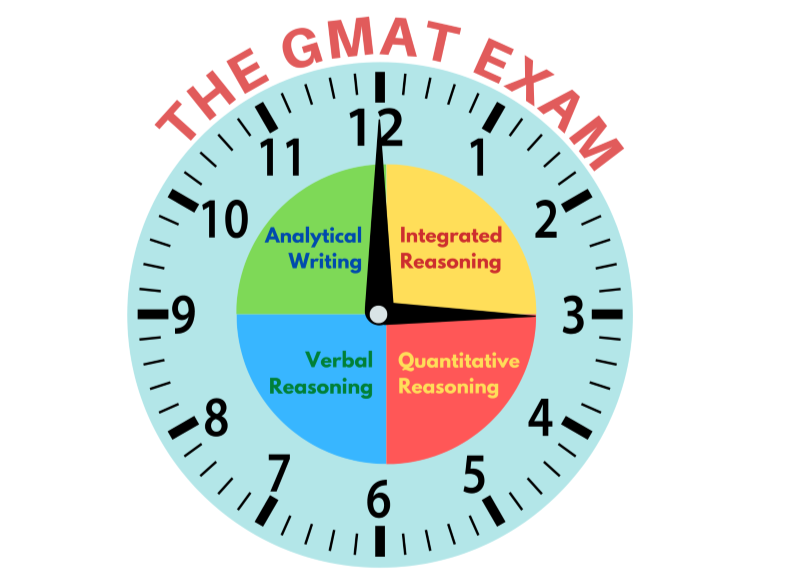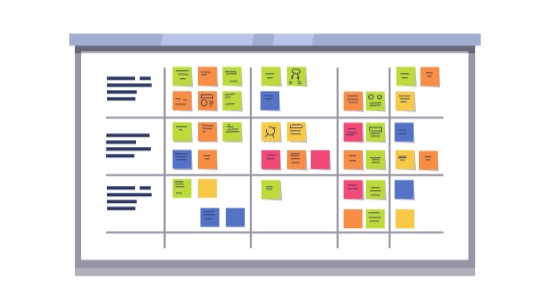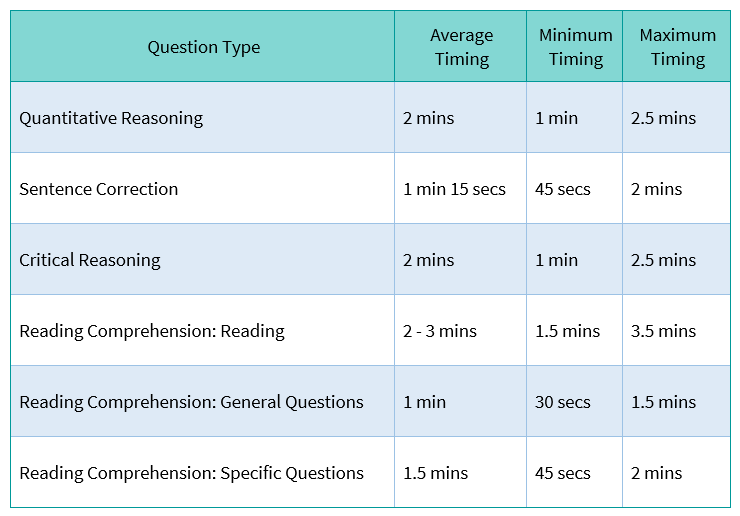
This logo isn't an ad or affiliate link. It's an organization that shares in our mission, and empowered the authors to share their insights in Byte form.
Rumie vets Bytes for compliance with our
Standards.
The organization is responsible for the completeness and reliability of the content.
Learn more
about how Rumie works with partners.
Good news! You've received confirmation that you'll be accepted at your target MBA program on condition that you pass the Graduate Management Admissions Test (GMAT).
Now, you're both excited and panicking! Not sure if you're ready to handle the time pressure when you take GMAT?
The time needed to study for the GMAT depends on various factors, such as the individual's current knowledge base, test-taking ability, and the desired score.
Generally, it is recommended to dedicate at least 3 months to studying for the GMAT. This should include a combination of self-study, practice tests, and tutoring. It is important to note that the amount of time needed to study for the GMAT can vary greatly depending on the individual.
Therefore, assessing your needs and creating a study plan that works for you is important. To ensure success, it is important to be consistent and diligent in your GMAT preparation.
How long does it take to study for GMAT? Generally, 3 months is a good time to study for the GMAT.

Don't worry! A few time management strategies will help you prepare for the GMAT and take the exam on the day with confidence.
Tip #1 — Create a Time Management Plan

Make a personalized time management plan. Set yourself up for success! Keep it simple and flexible so that you can commit to it.
Your plan should cover each section of the GMAT:
Analytical Writing
Integrated Reasoning
Quantitative Reasoning
Verbal Reasoning
List all the sections including their sub-sections and write down the time allotted for each.
How to develop your plan:
Begin with timed practice test questions to gauge your pace and monitor your progress.
review time spent on each section & sub-section
review time spent on different question types
identify your strong & weak subject areas
Tip #2 — Create Different Strategies for Each Section
 To understand your timing:
To understand your timing:
Use results of your practice test questions to create time-bound management strategies for different types of questions.
These strategies will help you to identify your areas of strength and weakness.
Set time limits & practice how to quickly:
read multi-part passages/questions
use shortcuts for math formulas
write essays & logical arguments
interpret data graphics & tables
Use these time management tools:
a calendar & timer
time tracking apps with test logs
online scheduling with alerts
online productivity organizers
⚡Test Your Knowledge

Reuben is reviewing the results of his first GMAT mock exam. He performed well on the Analytical essay and short question passages on Verbal Reasoning.
He didn't answer many questions on Quantitative Reasoning because he couldn't recall some of the math formulas.
He struggled with multi-part questions interpreting data graphs on Integrated Reasoning, so he skipped several questions.
Reuben is very disappointed. He failed to finish the mock exam on time.
Reuben is considering the following techniques to improve his timing but isn't sure which would be suitable.
A. Practice how to quickly read and answer multi-part questions with templates
B. Read and familiarize himself with how to answer essay writing questions
C. Practice 1–2-hour focused study sessions on math formula shortcuts and data graphics
D. Take frequent online tests to practice timing and identify strong and weak areas
Quiz
Which time management strategy would improve Rueben’s performance? Select all that apply.
Strategies A, C, and D are time management techniques for Reuben to practice and improve his overall performance on the GMAT exam. He can practice timed shortcuts to math formulas, and interpreting data charts and graphs. Frequently taking timed practice questions and mock tests will increase his speed, pacing, and accuracy.
Tip #3 — Analyze How You Manage Your Time

Analyze practice test results to manage your time within each section.

Take regular, timed mock exams in realistic test settings, to increase your speed and accuracy on different categories. For example, multi-part questions will reduce the amount of time for problem-solving.
What can you do to improve your timing?
Use focused 1–2-hour study sessions to know when to:
speed up or slow your pace on specific questions
answer easy questions within a set minimum time
keep a maximum 3-minute limit per question
exceed a maximum 3-minute time limit on a question
Use this example of a GMAT time management table as a guide to plan your timing strategies to answer different question types.

Check out details about this table on sample timing guidelines for different categories of questions on the GMAT
⚡Test Your Knowledge

Mirriam is spending the weekend working on a GMAT practice test to improve her accuracy & speed with multi-part questions. She is considering the following options to practice time management to prepare for the GMAT exam.
A. Practice writing timed essay questions with well-crafted arguments.
B. Study with friends on practice test questions & use their preferred timing techniques.
C. Practice online multi-part test questions to develop timing & pacing strategies.
D. Use an Official GMAT Guidebook to understand practice questions & mock tests.
Quiz
Which option will help Mirriam to practice effective time management on the GMAT exam?
Option C will allow Mirriam to practice on a variety multi-part questions under realistic test conditions. She will be able to analyze the results of her performance, construct personalized time management strategies to improve her accuracy, pacing, and speed. Options A, B and D may assist Mirriam, but do not directly address her immediate need for tackling multi-part questions.
Take Action

Prepare for the GMAT exam.Practice timed-bound mock tests to construct time management strategies that will help you:
This Byte has been authored by
Mary Mills
eLearning Designer & eLearning Design Editor

